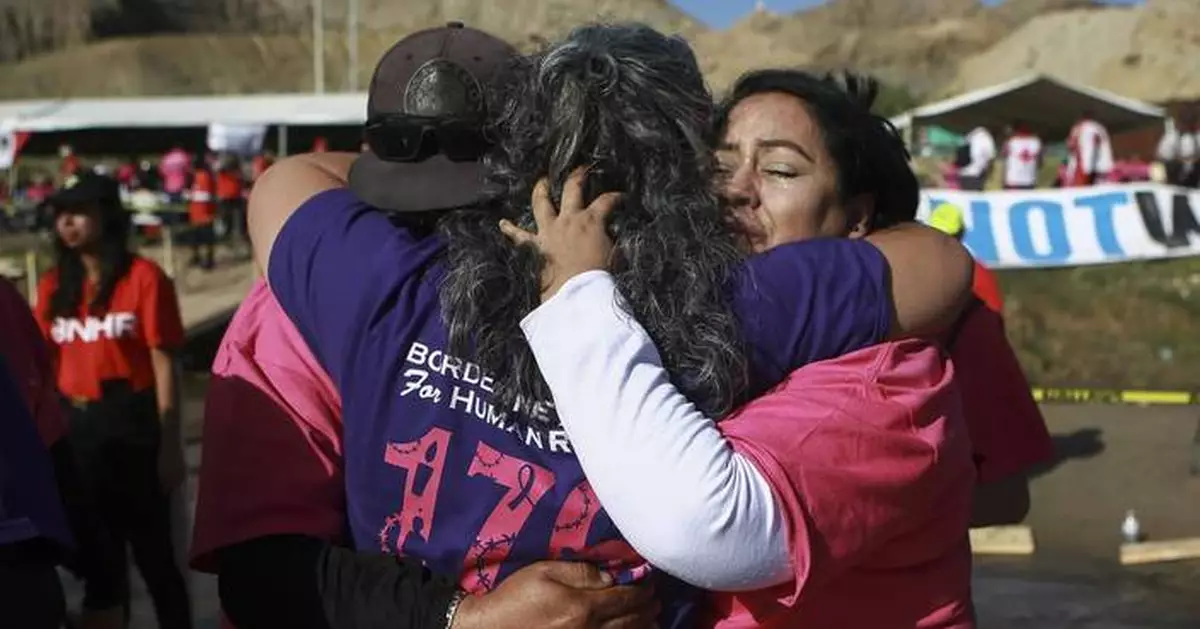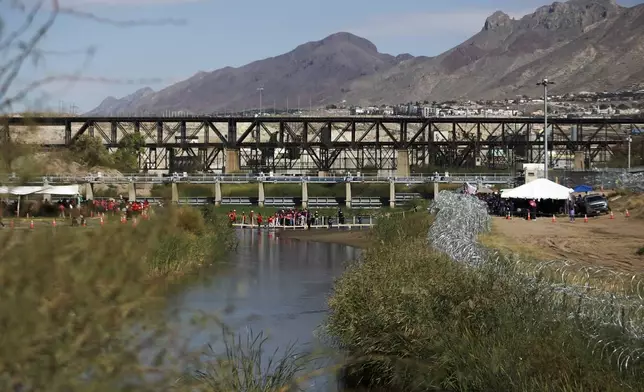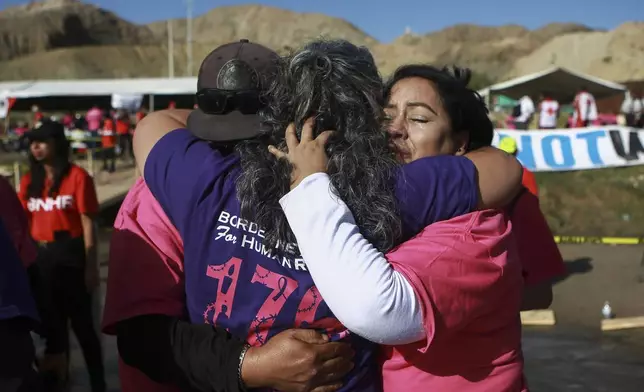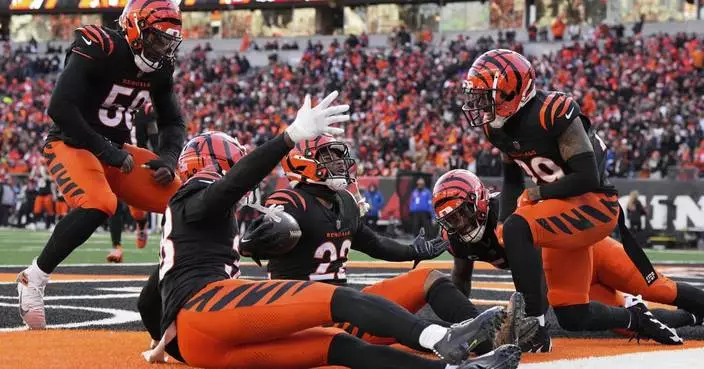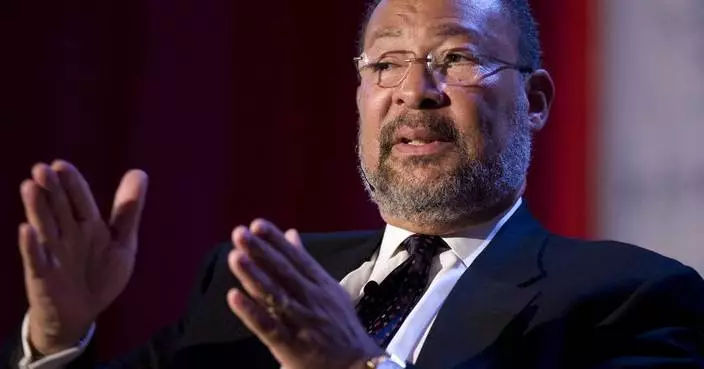CIUDAD JUAREZ, Mexico (AP) — Nearly 200 families gathered Saturday along a stretch of the U.S.-Mexico border for heartfelt but brief reunions with loved ones they had not seen for years because they live in opposite countries.
Tears flowed and people embraced as Mexican families were allowed to reunite for a few minutes at the border with relatives who migrated to the U.S. Adults and children passed over the Rio Grande to meet with their loved ones.
Click to Gallery
People living in Mexico meet with relatives living in the U.S., during the annual "Hugs not Walls" event on a stretch of the Rio Grande, in Ciudad Juarez, Mexico, Saturday, Nov. 2, 2024. (AP Photo/Christian Chavez)
People living in Mexico meet with relatives living in the U.S., during the annual "Hugs not Walls" event on a stretch of the Rio Grande, in Ciudad Juarez, Mexico, Saturday, Nov. 2, 2024. (AP Photo/Christian Chavez)
People living in Mexico embrace relatives living in the U.S., during the annual "Hugs not Walls" event on a stretch of the Rio Grande, in Ciudad Juarez, Mexico, Saturday, Nov. 2, 2024. (AP Photo/Christian Chavez)
People living in Mexico meet with relatives living in the U.S., during the annual "Hugs not Walls" event on a stretch of the Rio Grande, in Ciudad Juarez, Mexico, Saturday, Nov. 2, 2024. (AP Photo/Christian Chavez)
People living in Mexico meet with relatives living in the U.S., during the annual "Hugs not Walls" event on a stretch of the Rio Grande, in Ciudad Juarez, Mexico, Saturday, Nov. 2, 2024. (AP Photo/Christian Chavez)
A person living in Mexico and a relative living in the U.S., embrace during the annual "Hugs not Walls" event on a stretch of the Rio Grande, in Ciudad Juarez, Mexico, Saturday, Nov. 2, 2024. (AP Photo/Christian Chavez)
People living in Mexico meet with relatives living in the U.S., during the annual "Hugs not Walls" event on a stretch of the Rio Grande, in Ciudad Juarez, Mexico, Saturday, Nov. 2, 2024. (AP Photo/Christian Chavez)
This year, the annual event organized by an immigrant rights advocacy group happened three days before the U.S. presidential election, whose monthslong campaigns have focused heavily on immigration and border security. It also took place under increased security, according to the Network in Defense of the Rights of Migrants.
“We did not have barbed wire, we did not have so many soldiers deployed in our community,” said Fernando García, the organization’s director, highlighting the border security changes that the border has seen since the reunions began last decade. “The barbed wire had to be opened so that the families could have this event.”
García said he expects migration into the U.S. to continue regardless of who wins Tuesday’s election. Family reunions, he said, will continue, too.
“Deportation policy, border policy, immigration policy, is separating families in an extraordinary way and is deeply impacting these families,” he told reporters ahead of the event.
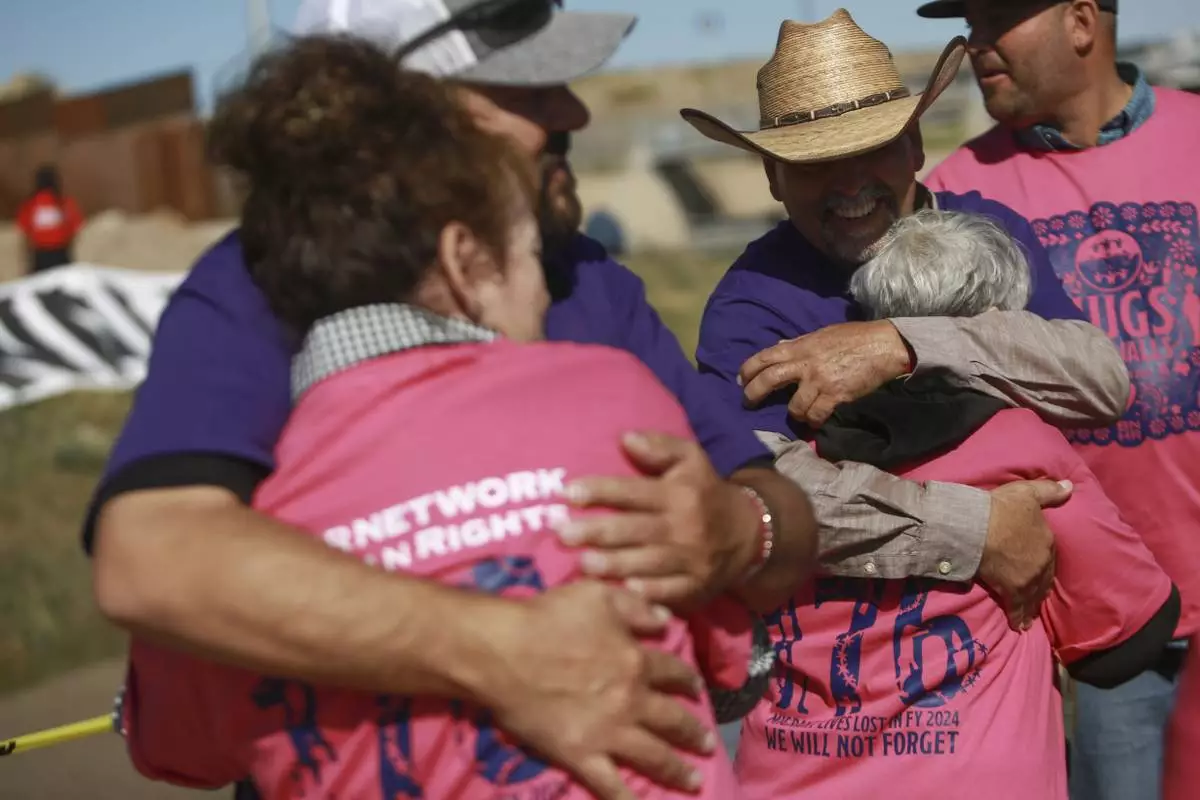
People living in Mexico meet with relatives living in the U.S., during the annual "Hugs not Walls" event on a stretch of the Rio Grande, in Ciudad Juarez, Mexico, Saturday, Nov. 2, 2024. (AP Photo/Christian Chavez)
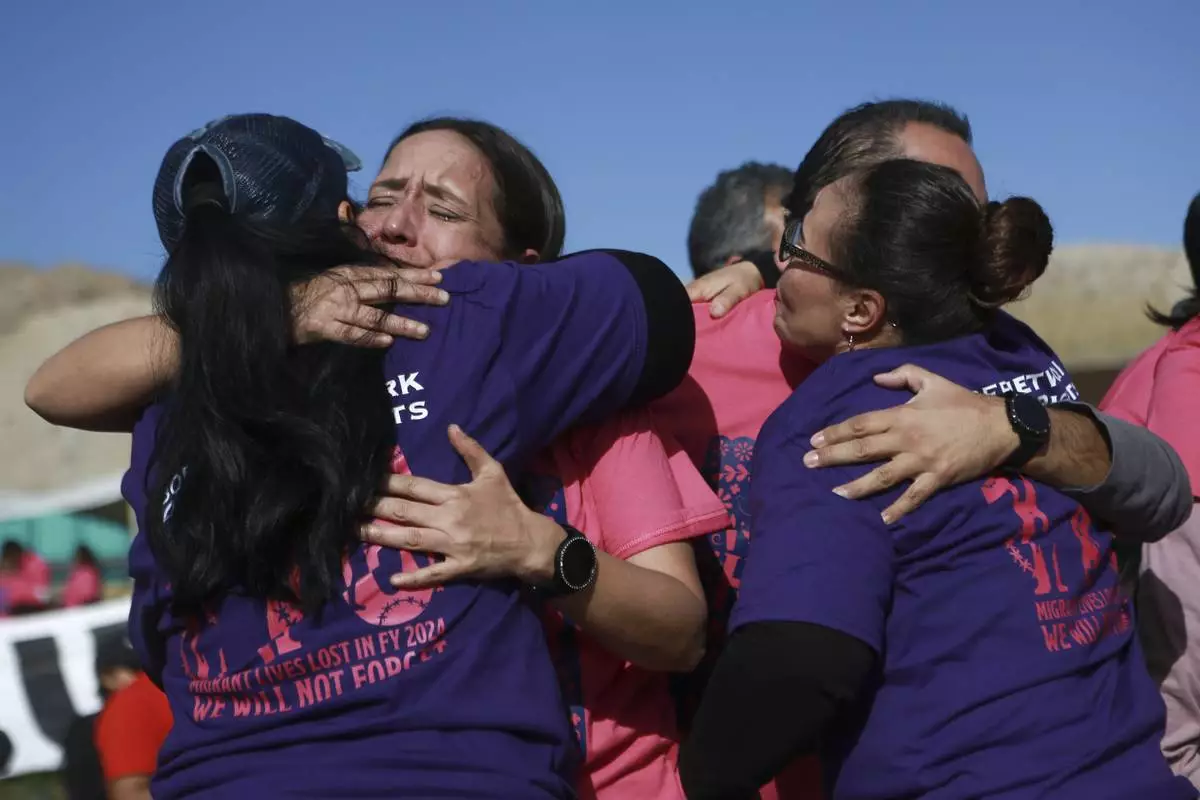
People living in Mexico meet with relatives living in the U.S., during the annual "Hugs not Walls" event on a stretch of the Rio Grande, in Ciudad Juarez, Mexico, Saturday, Nov. 2, 2024. (AP Photo/Christian Chavez)
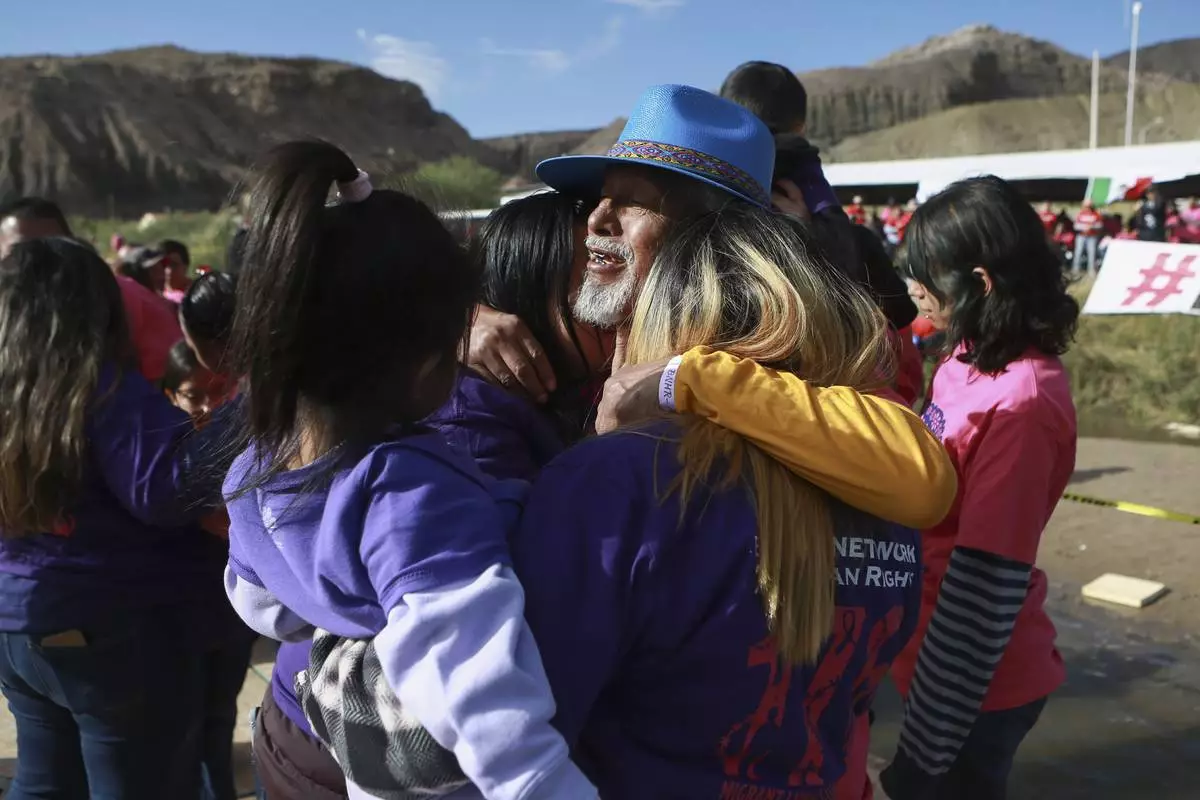
People living in Mexico embrace relatives living in the U.S., during the annual "Hugs not Walls" event on a stretch of the Rio Grande, in Ciudad Juarez, Mexico, Saturday, Nov. 2, 2024. (AP Photo/Christian Chavez)

People living in Mexico meet with relatives living in the U.S., during the annual "Hugs not Walls" event on a stretch of the Rio Grande, in Ciudad Juarez, Mexico, Saturday, Nov. 2, 2024. (AP Photo/Christian Chavez)
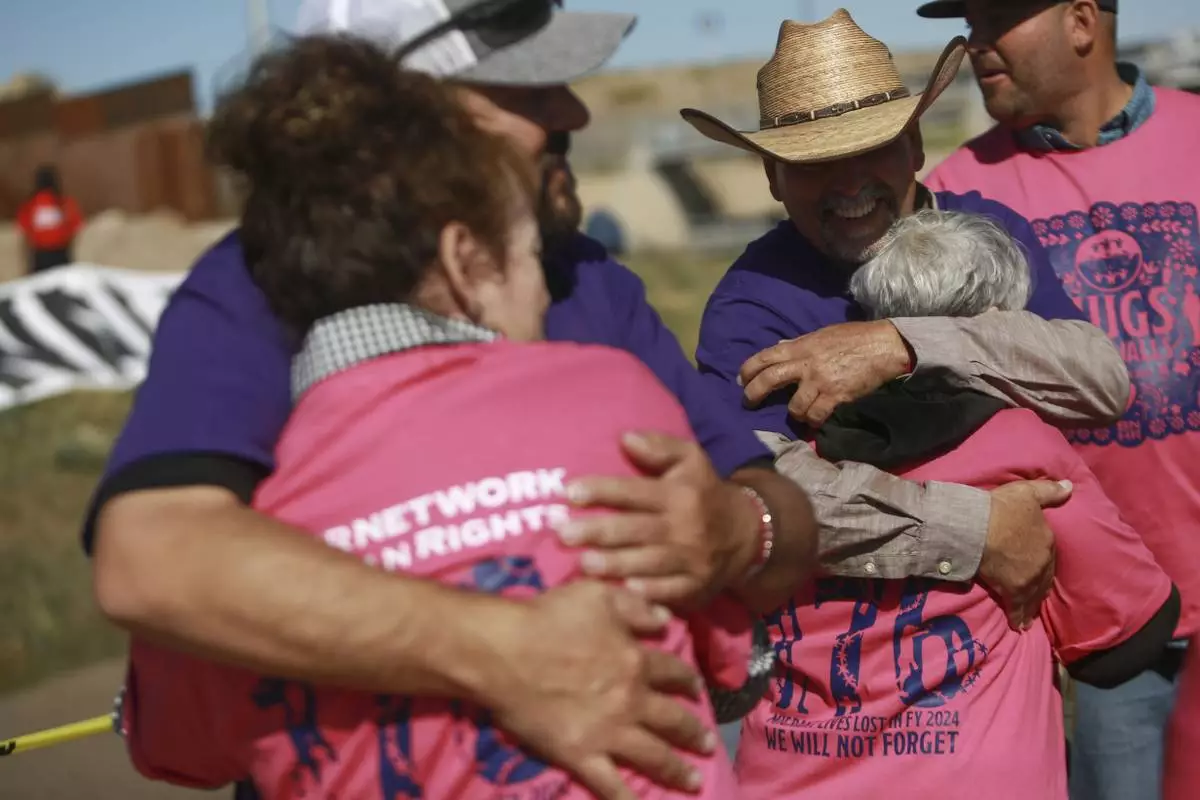
People living in Mexico meet with relatives living in the U.S., during the annual "Hugs not Walls" event on a stretch of the Rio Grande, in Ciudad Juarez, Mexico, Saturday, Nov. 2, 2024. (AP Photo/Christian Chavez)
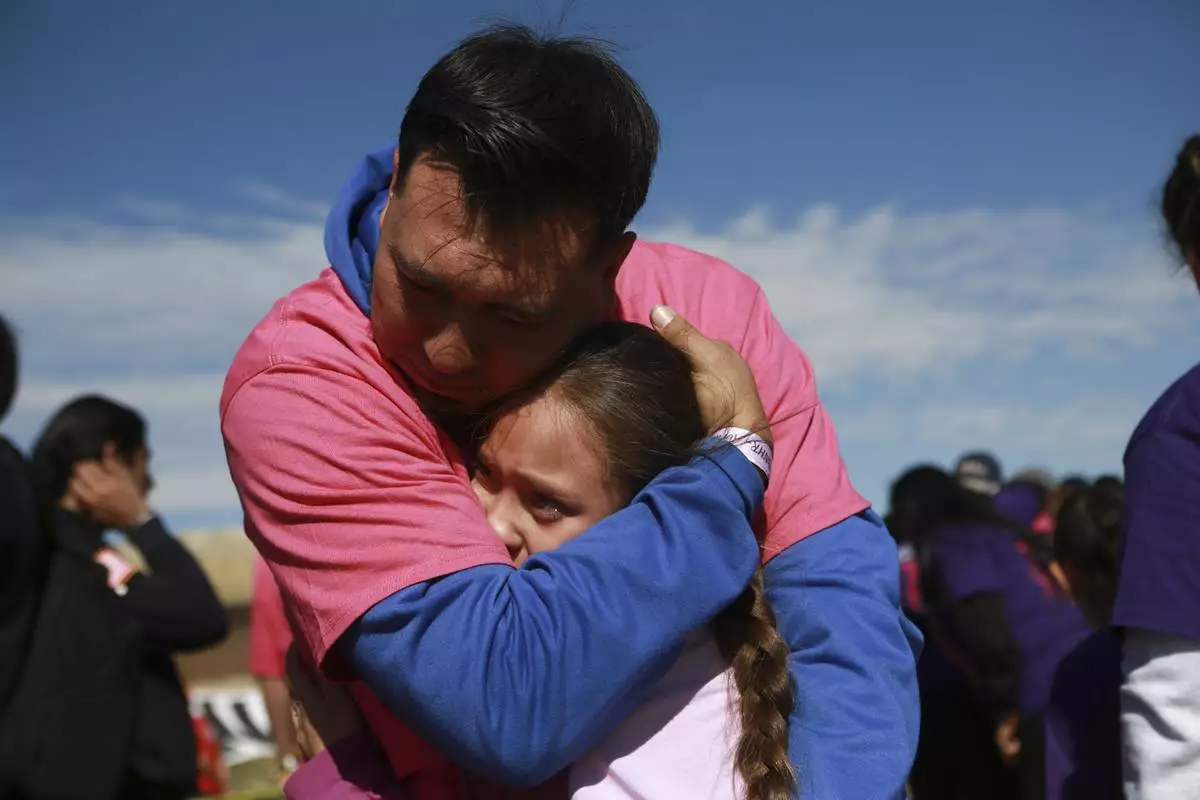
A person living in Mexico and a relative living in the U.S., embrace during the annual "Hugs not Walls" event on a stretch of the Rio Grande, in Ciudad Juarez, Mexico, Saturday, Nov. 2, 2024. (AP Photo/Christian Chavez)

People living in Mexico meet with relatives living in the U.S., during the annual "Hugs not Walls" event on a stretch of the Rio Grande, in Ciudad Juarez, Mexico, Saturday, Nov. 2, 2024. (AP Photo/Christian Chavez)
GUAYAQUIL, Ecuador (AP) — A probe into the military's role in the disappearance of four children in Ecuador this month was delayed for almost two weeks, even though police had access to surveillance videos showing soldiers taking two of the children, The Associated Press has learned.
The case of the children, aged 11 to 15, who went missing on Dec. 8 in the coastal city of Guayaquil after playing a soccer, has struck a nerve in Ecuador, with rights groups and the public demanding information about their whereabouts and asking that the case be investigated as a forced disappearance.
The surveillance video was handed in to authorities a day after the children went missing, two persons familiar with the investigation told the AP. But an investigation of the military’s role in the disappearance was not announced until 15 days later.
The two spoke on condition of anonymity to discuss the case. The probe only started after the children's families went on local news channels and social media to demand more action from authorities.
The security footage, showing men in military uniform grabbing two boys and driving off with them in a pickup truck, became public earlier this week. The two children in the video are believed to be among the four who disappeared that night.
On Tuesday, four badly charred bodies were found near an air force base in the city of Taura, officials said, and they were looking into whether the bodies could be of the missing children.
Later that day, 16 soldiers from the base were arrested. Investigators said it could take up to a month to confirm if the bodies are of the children because their fingerprints had been burnt off and forensic workers will have to extract DNA fragments from bones or teeth for identification purposes.
The soldiers are due to appear at a hearing next Tuesday, where they are expected to be charged with the forced disappearance of the children, according to the Attorney General’s Office.
Ecuador’s Defense Minister, Gian Carlo Lofffredo said Thursday that the 16 soldiers will also be questioned by a military tribunal and that the patrol linked to the disappeared children had not been authorized by officers at the Taura base.
Ecuador’s police deferred questions from the AP about the videos to the national prosecutor’s office, which declined to respond. The Ministry of Defense and the Ecuadorean army also did not respond to questions about the footage.
Violence in Ecuador intensified in January after a gang leader escaped from prison amid deadly riots. Two days later, members of another drug gang attacked a television channel and interrupted a live broadcast to make demands to the government.
President Daniel Noboa's government has leaned on the military to curb gang violence . However, the military has now been implicated in several abuses, including the disappearance of two children in August in the central province of Los Rios, and the case of a 19-year-old who was fatally shot by the military at a checkpoint on a road in Guayaquil.
Noboa has promised to reduce violence as he prepares to run for reelection in February.
But many Ecuadorians have expressed their discontent as the homicide rate has tripled in the South American country since 2021, and extortion by drug gangs has forced thousands of people to migrate to the United States.
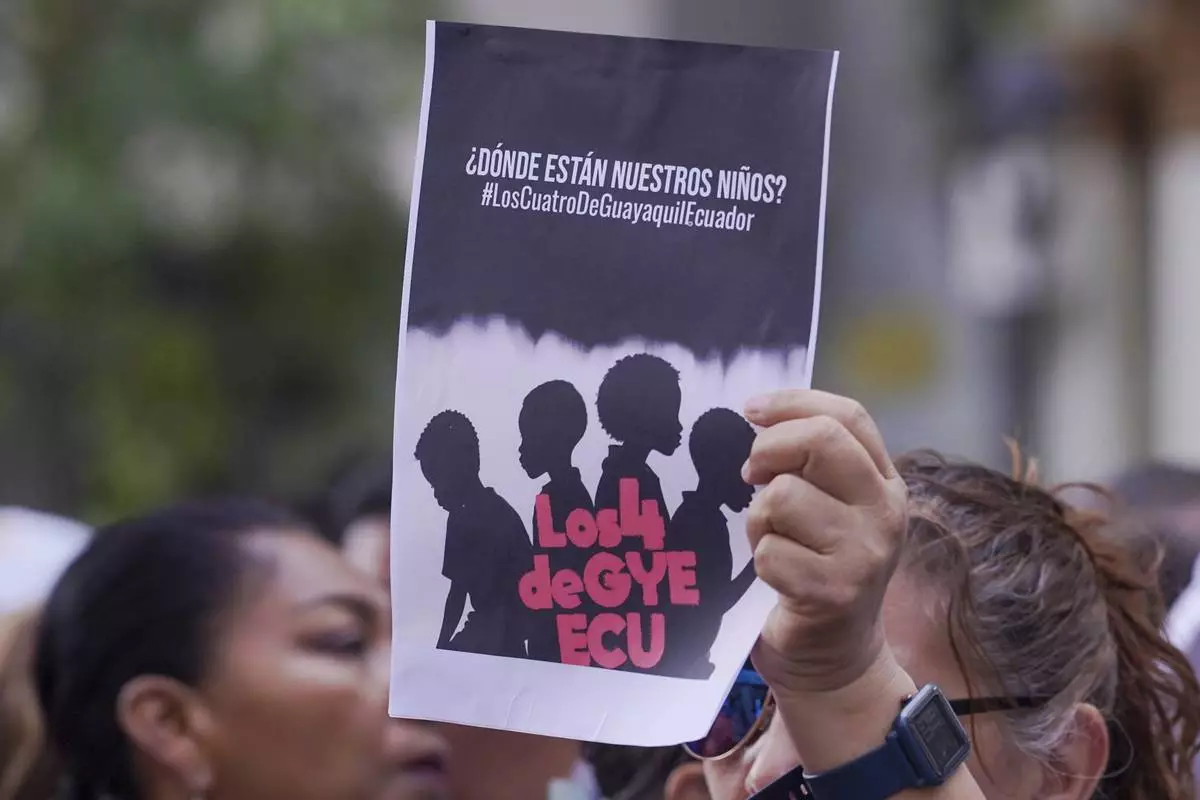
People protest outside the prosecutor's office against the disappearance of four children who were last seen on Dec. 8 running away from a military convoy in Guayaquil, Monday, Dec. 23, 2024. The sign reads in Spanish "Where are our children? The four from Guayaquil, Ecuador." (AP Photo/Cesar Munoz)
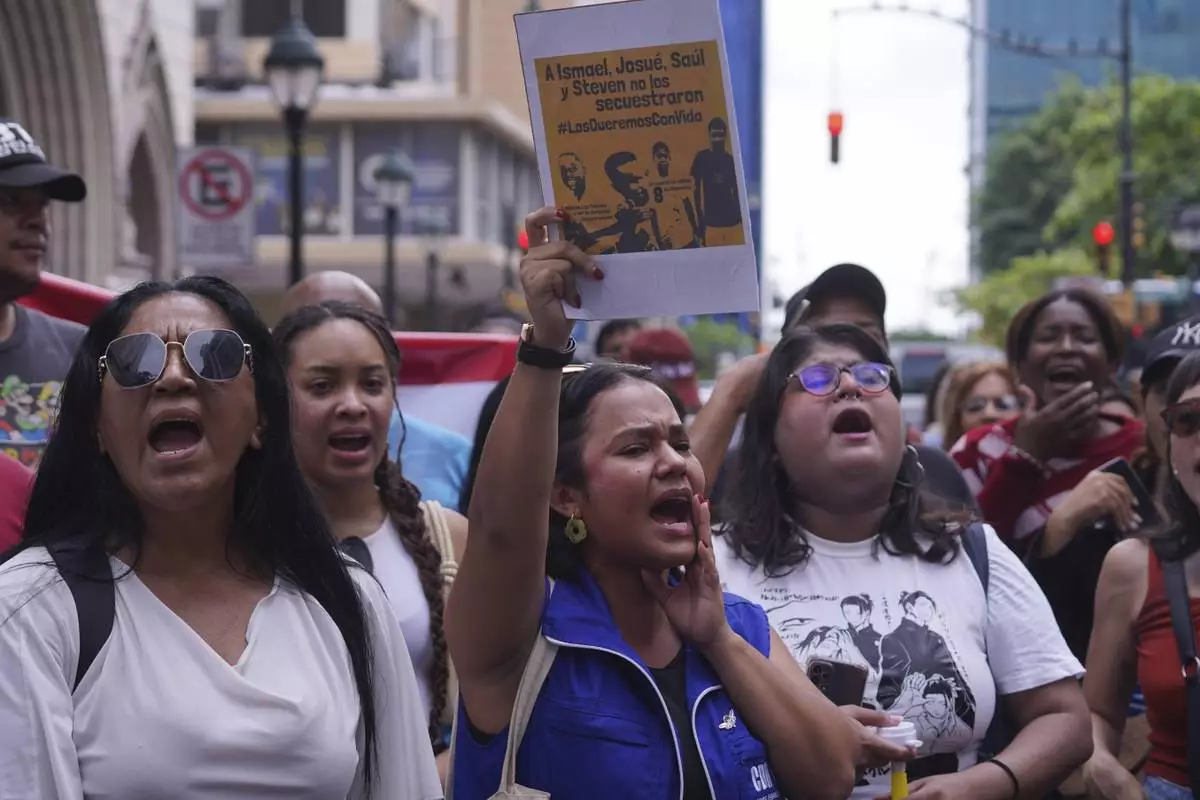
People protest outside the prosecutor's office against the disappearance of four children who were last seen on Dec. 8 running away from a military convoy in Guayaquil, Monday, Dec. 23, 2024. (AP Photo/Cesar Munoz)

A mural of a child and the Spanish message "Where are they?" cover a wall in protest of the disappearance of four children who were last seen on Dec. 8 running away from a military convoy in Guayaquil, Monday, Dec. 23, 2024. (AP Photo/Cesar Munoz)









